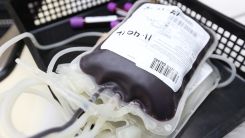
Margaret Davis

New, Shorter Treatment for HPV-Associated Oral Cancer Promises Excellent Disease Control, Fewer Side-Effects

Massive Asteroids, Comets Once Bombarded Earth That Altered Oxygen Levels in the Atmosphere
Tiny Unicellular Protist Can Help Predict Climate Change and Buffer Global Warming, Study Says

How Fast Does Each Planet in the Solar System Spin? Watch These Planetary Animations To Find the Answer
Male Fertility: Increased Chemical Exposure, Lifestyle Changes Cause Sperm Quality in the US to Decline
China Test-Fired Solid-Fueled Rocket Engine With Cutting Edge Technologies Capable of Generating 500 Tons of Thrust

TikTok is Bad For Your Brain: Constant Social Media Streaming Narrows Collective Attention Span, Adversely Affects Mental Health

Newly Found Sponge-Like Structures Could Push Animal Evolution Back by Several Hundred Million Years
Researchers Successfully Recreates Supernova Reaction In a Lab Using an Accelerated Beam of Radioactive Nuclei
Alligators vs. Crocodiles: See the Difference in Taxonomy, Physical Appearance, Habitat
NASA Plans to Buy More Seats From Private Sectors to Ferry Astronauts To and From the International Space Station

43-Year-Old Man Had His Right Eye Removed Due to Cancer With Symptoms of Watery, Irritated Eye

Cow Manure Turned Into Filter to Make Drinking Water from Seawater
One of the World's Last Two Northern White Rhinos Retires From Breeding Project Due to Old Age, Illness

Is An Anti-Aging Drug Underway? Startup Companies Are Trying to Make People Live Longer
NIH Funds $125M for Tissue Mapping Centers for Cellular Senescence to Study Lymphoid Organs
Women With Menopause Taking Hormone Replacement Therapy Has Increased Risk of Developing Cancer
Dinosaur Cloning Might Become Possible: First Healthy Prehistoric DNA Was Found in a Perfectly Preserved Fossil in China

Discover The 'Sweet Spot' for Total Sleep to Maintain Cognitive Performance, Avoid Alzheimer's Disease

NASA Shared Its 'Visions of the Future' Video For Space Tourism Featuring Kayaking on Saturn's Moon Titan, Skydiving in Exoplanet

Failed Russian Satellite Falls Back to Earth as Seen in West Michigan Sky; Space Junk Fireballs Becoming More Common

Exploding Pants Set Farmers on Fire: What Caused This Unusual Plague in New Zealand During 1930s?

Eczema Treatment: Scientists Identified Three Plant Derivatives to Soothe Dry, Cracked, Sore Skin
Deep-Sea Miniature Monsters: Scientists Identified 14 New Species Of Larvae Like Shrimps, Lobsters in the Gulf of Mexico

Weight-Neutral Approach to Exercise Is Better Than Shedding Pounds, Study Suggests

New Mathematical Model Shows Transfusions of Blood Substitutes Can Treat Anemic Patients, Solve Global Shortage

Around 76% of Adults Deficient in Selenium Often Associated With Dementia; Can It Slow Cognitive Decline?

How Difficult Is It to Develop AI That Thinks Like Humans? Researcher Try To Find Out

MIT Researchers Explore How Marsh Grass Provide Protection From Devastating Storm Surges Along the Shorelines
Most Popular

The Strongest Tornadoes Ever Recorded: Scientific Breakdown of Extreme Tornado Events

How Space Affects the Human Body: Key Health Challenges Impacting the Astronauts

Can Scientists Predict Earthquakes? The Latest Advances in Seismic Forecasting Explained

Photosynthesis Made Easy: Light Reactions, Calvin Cycle, and Everyday Examples




